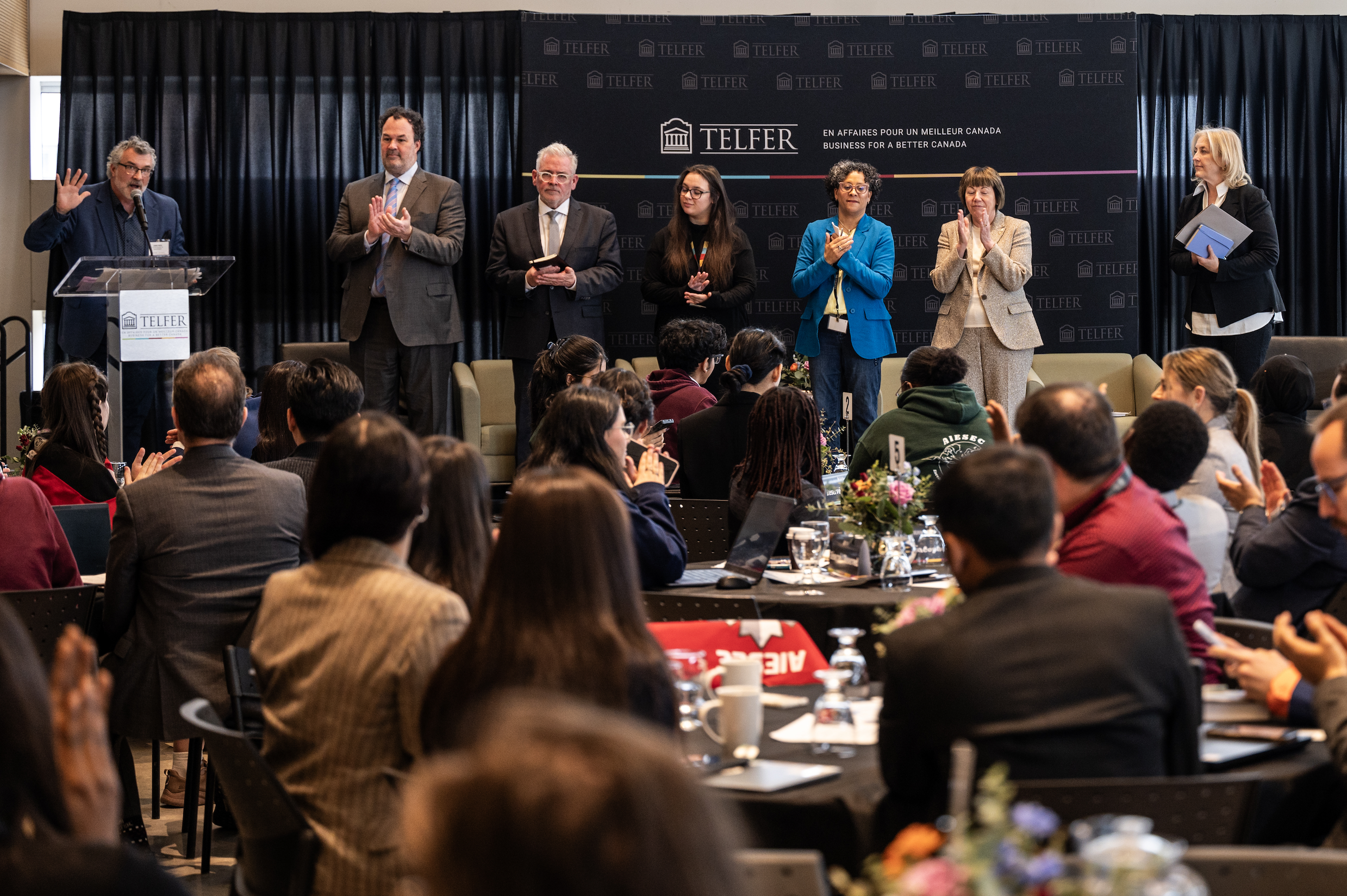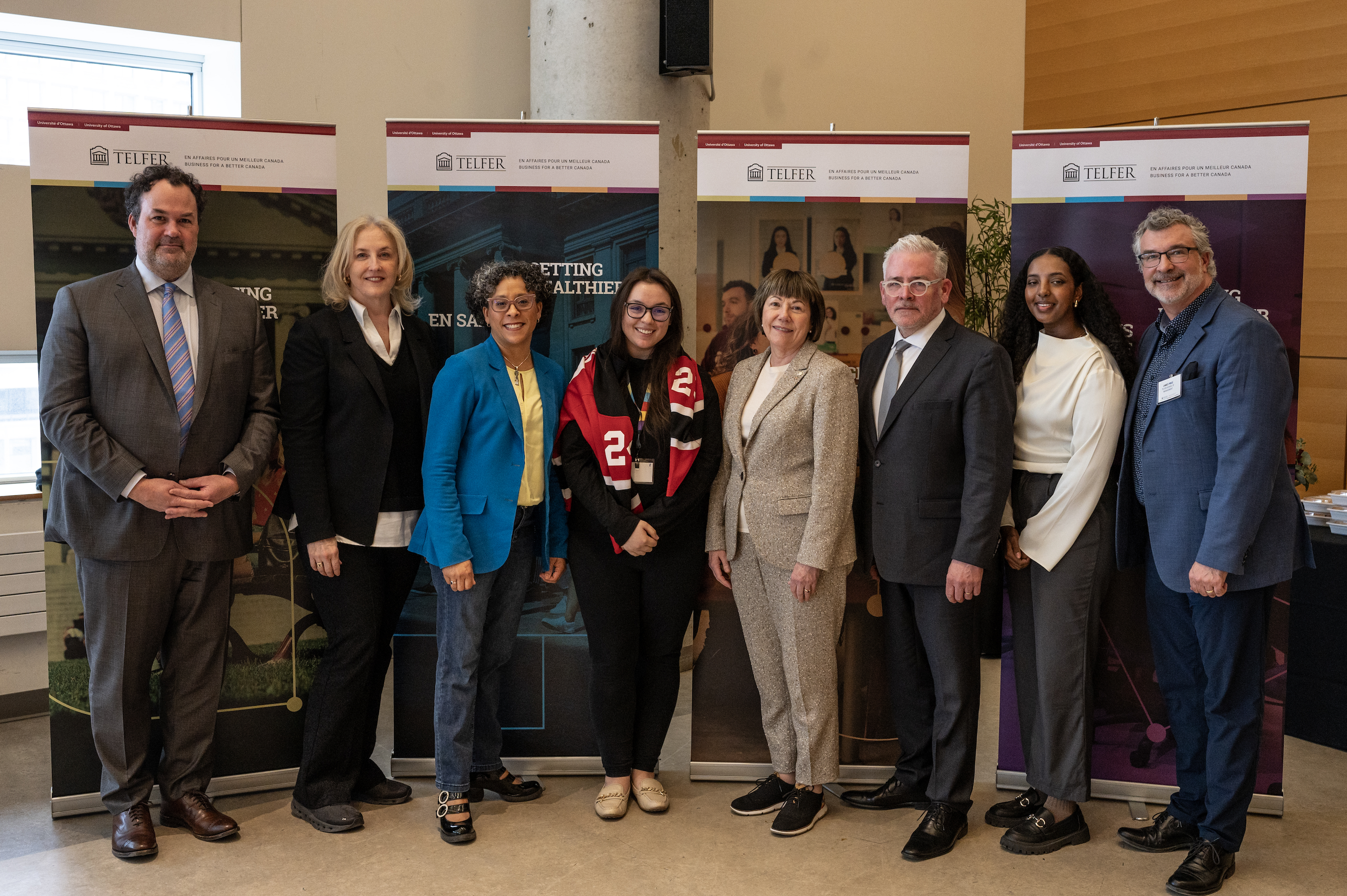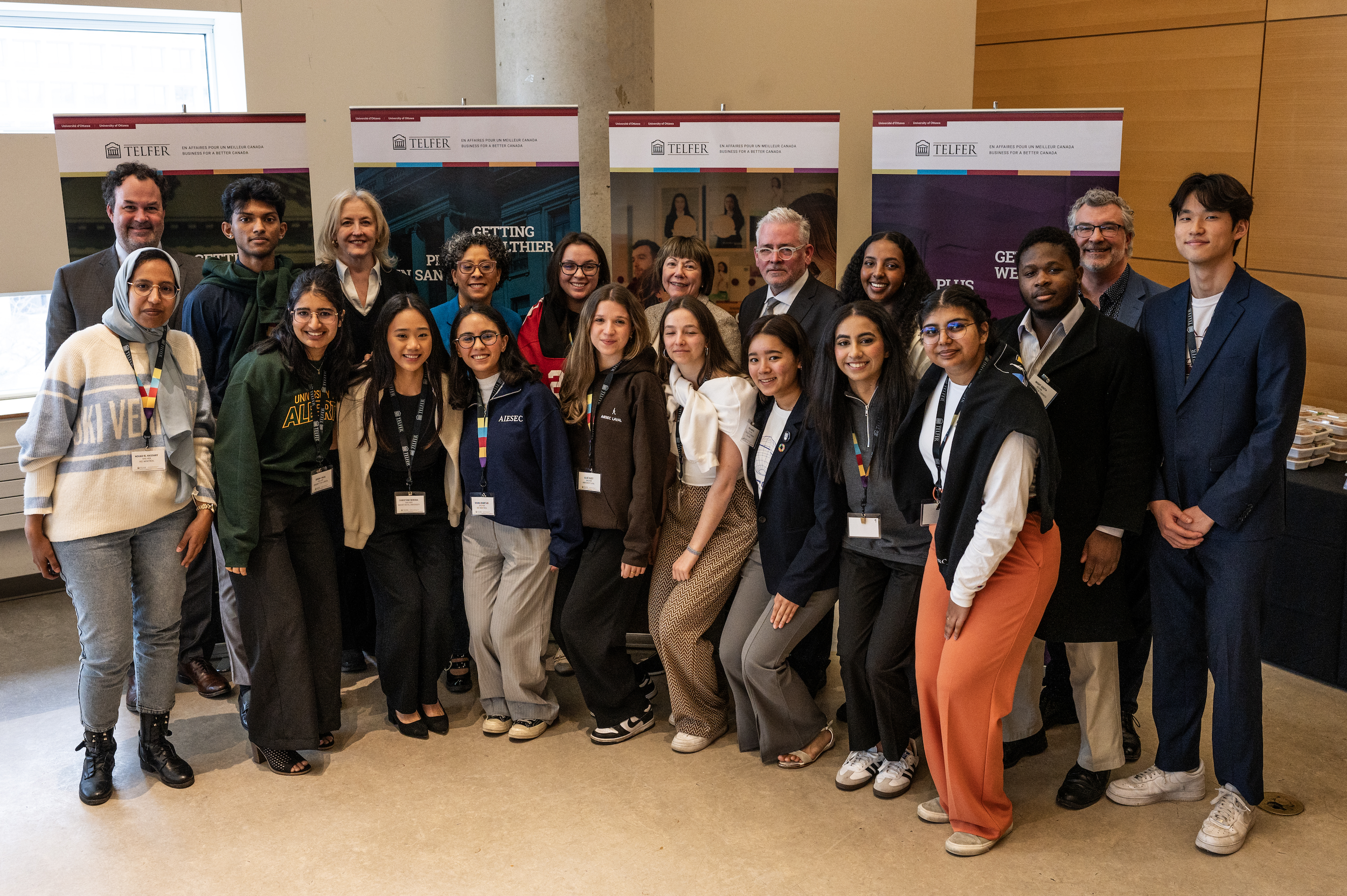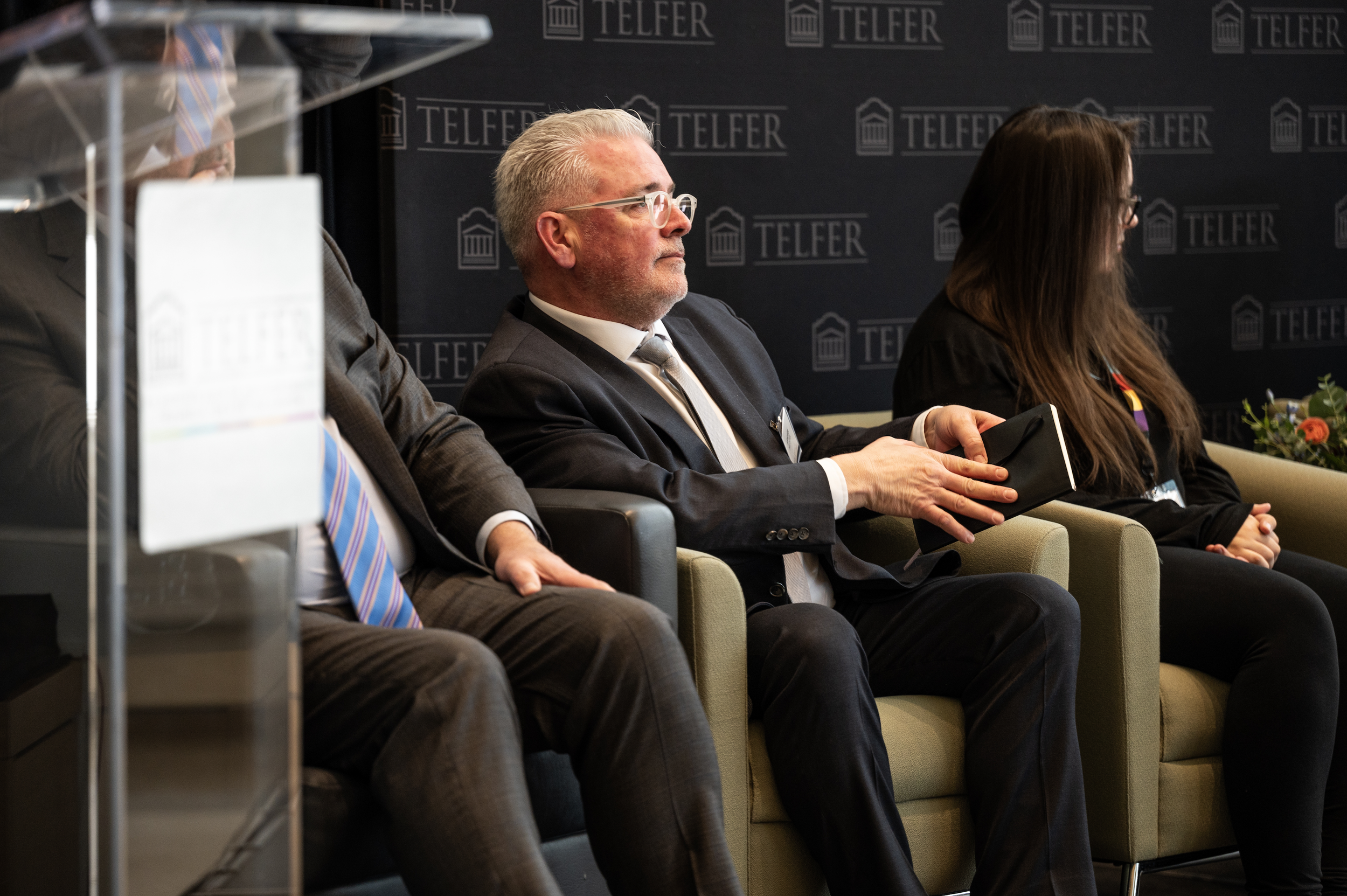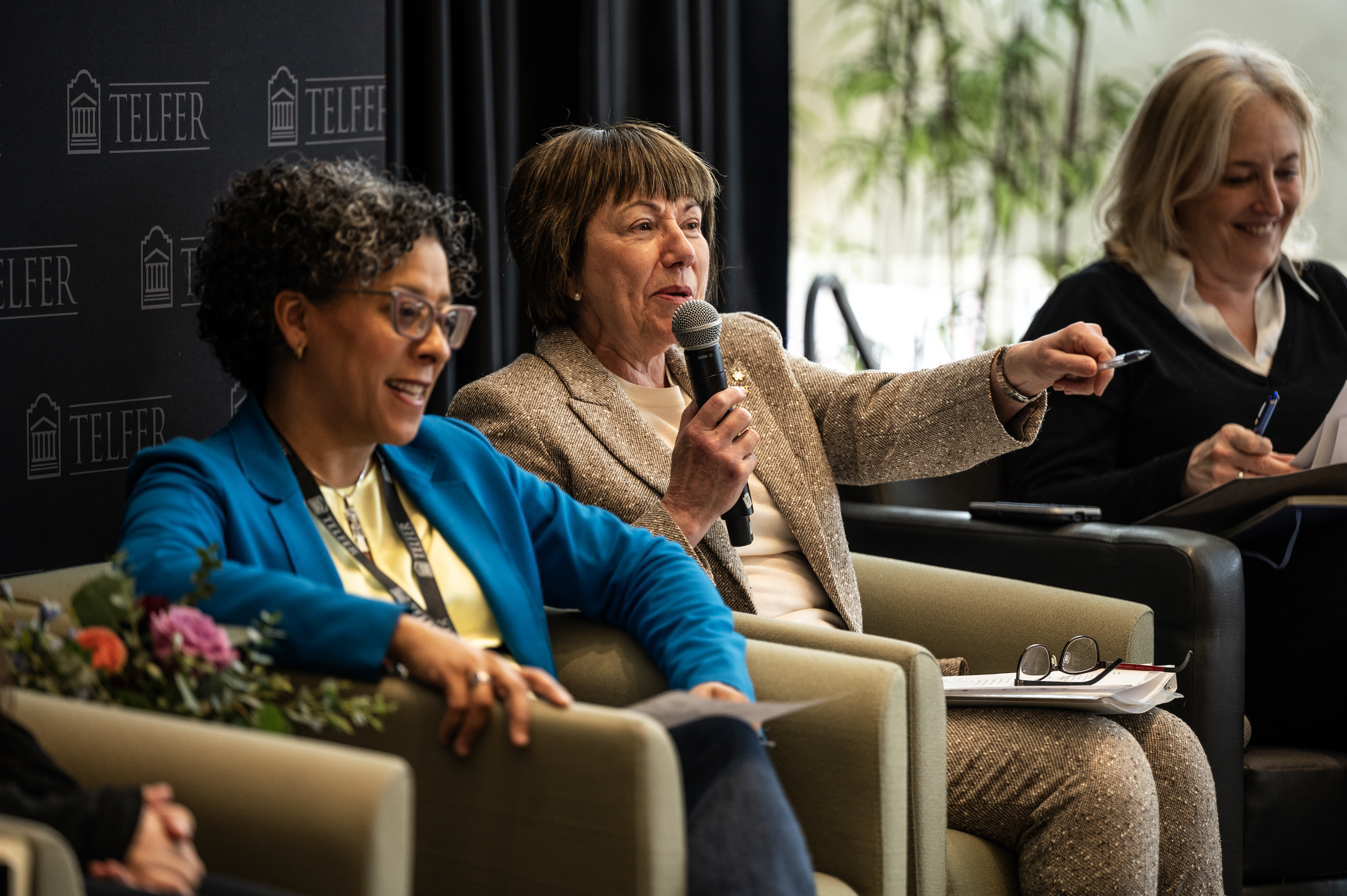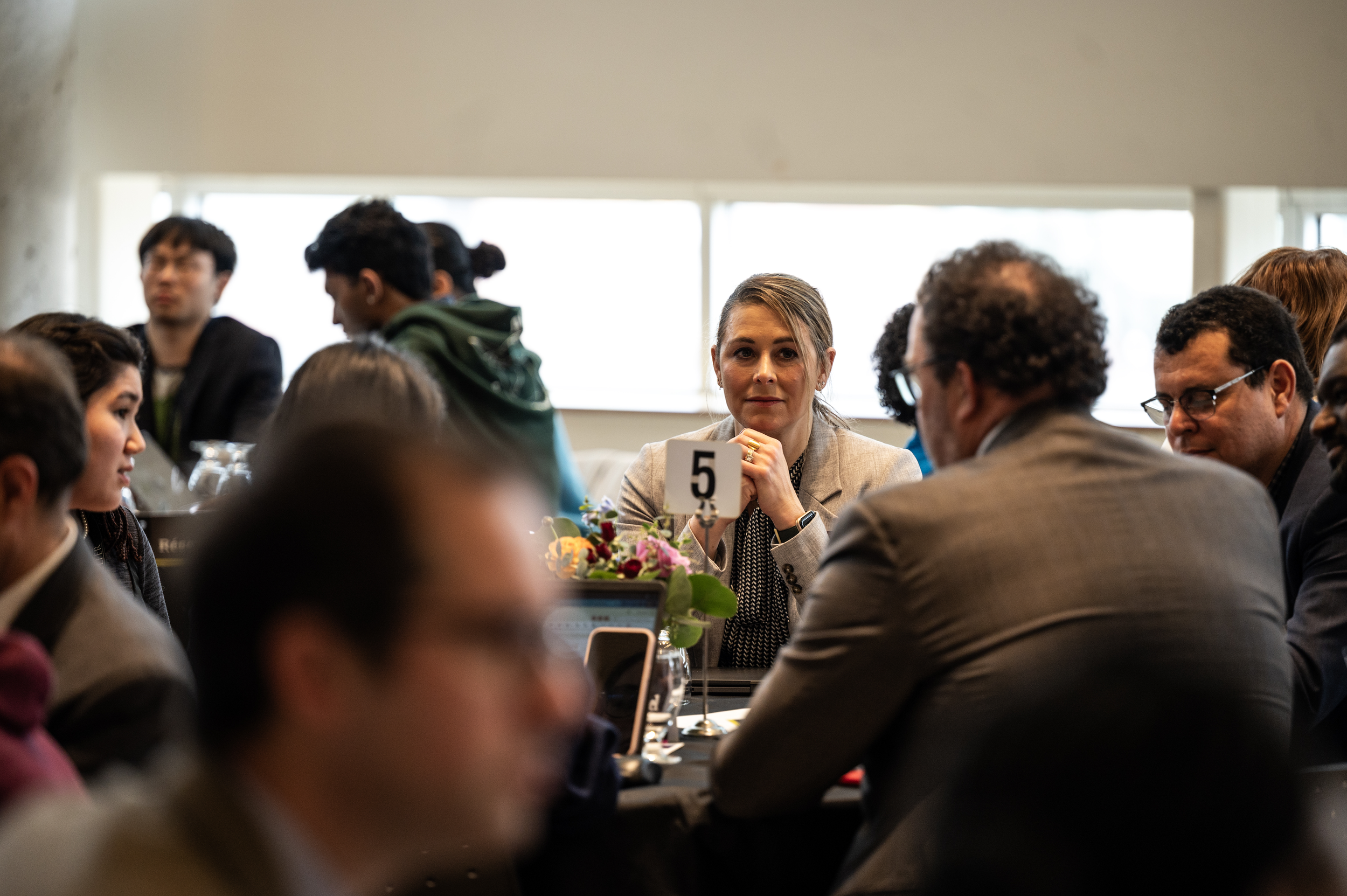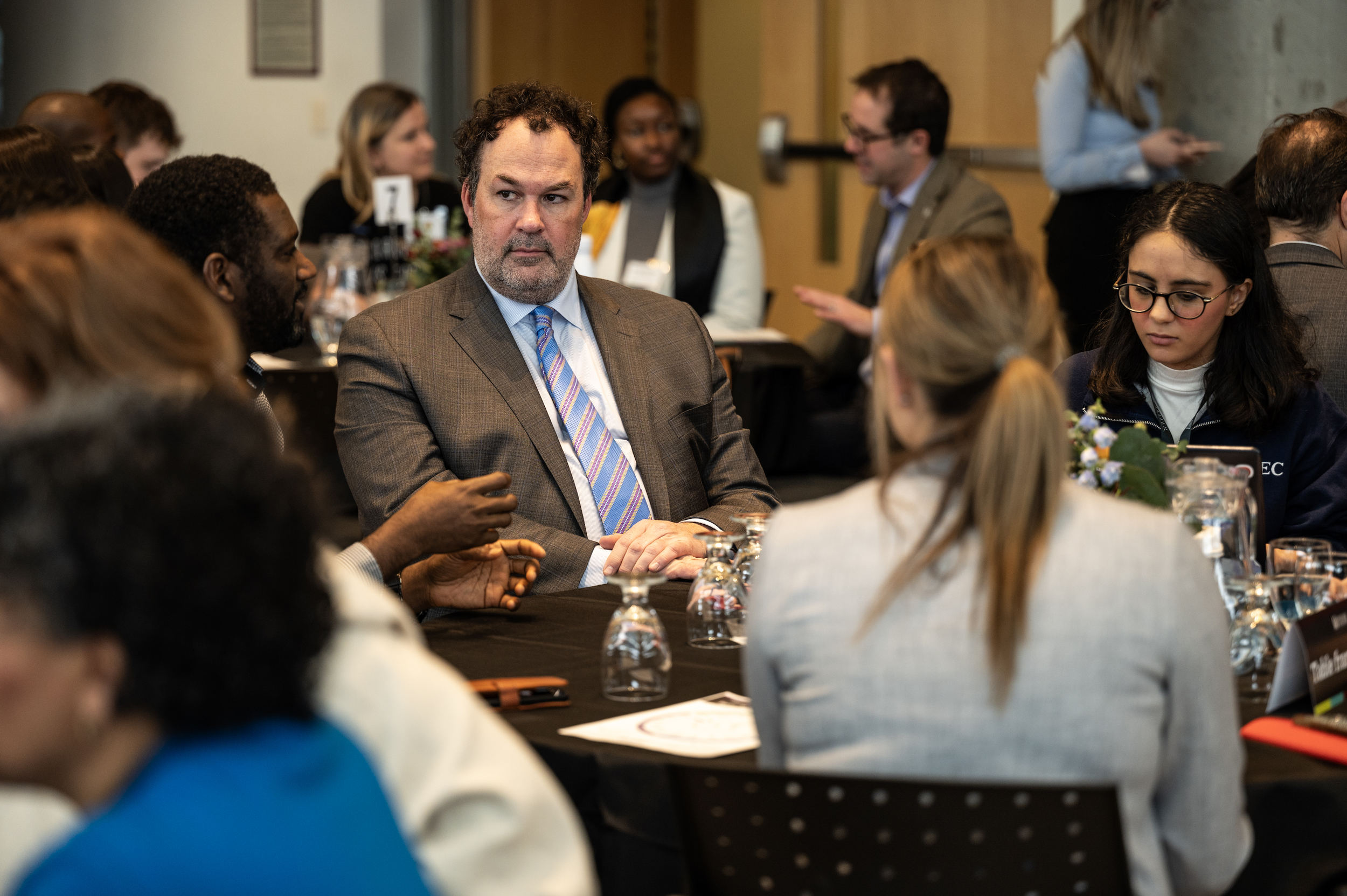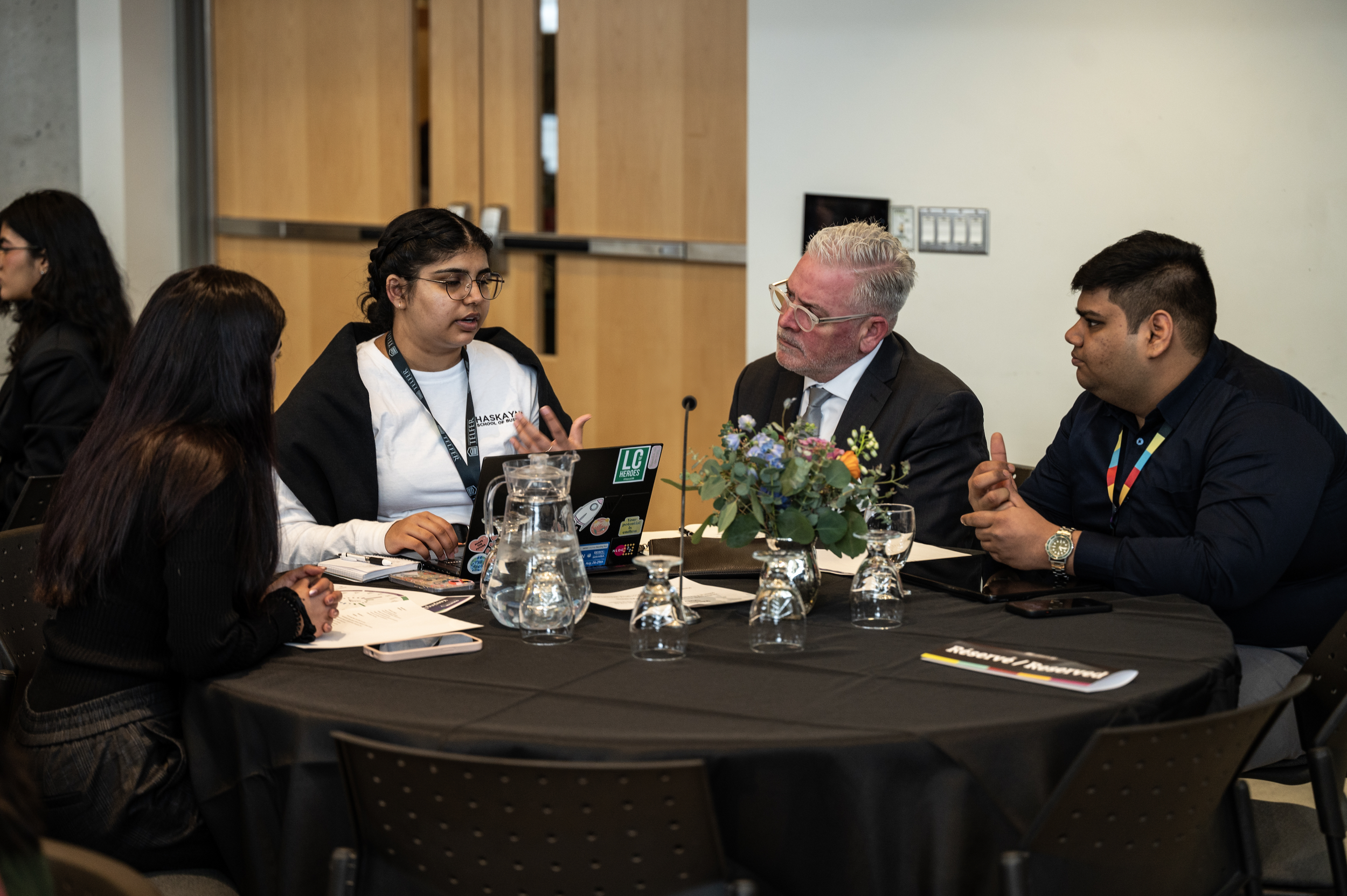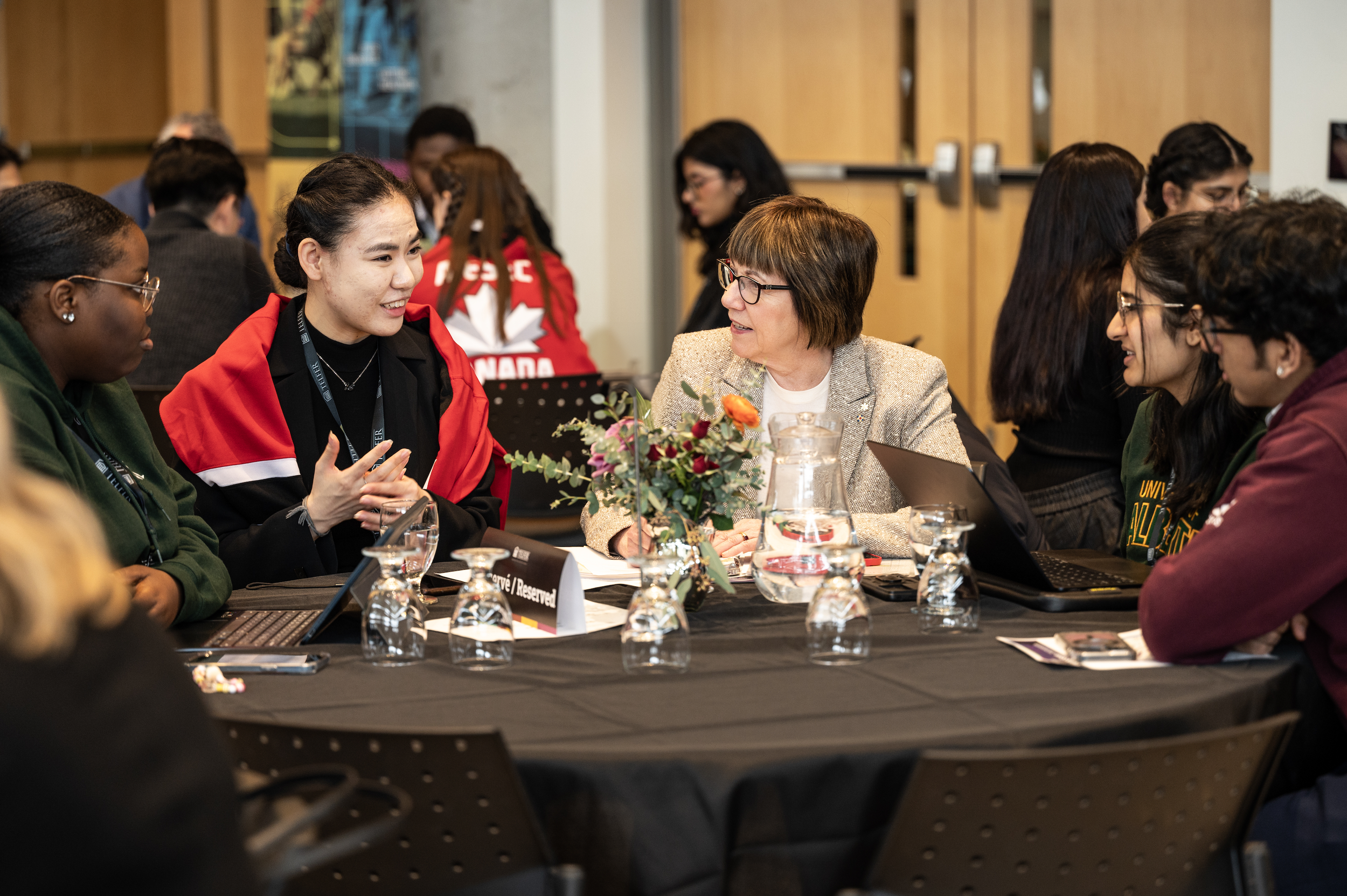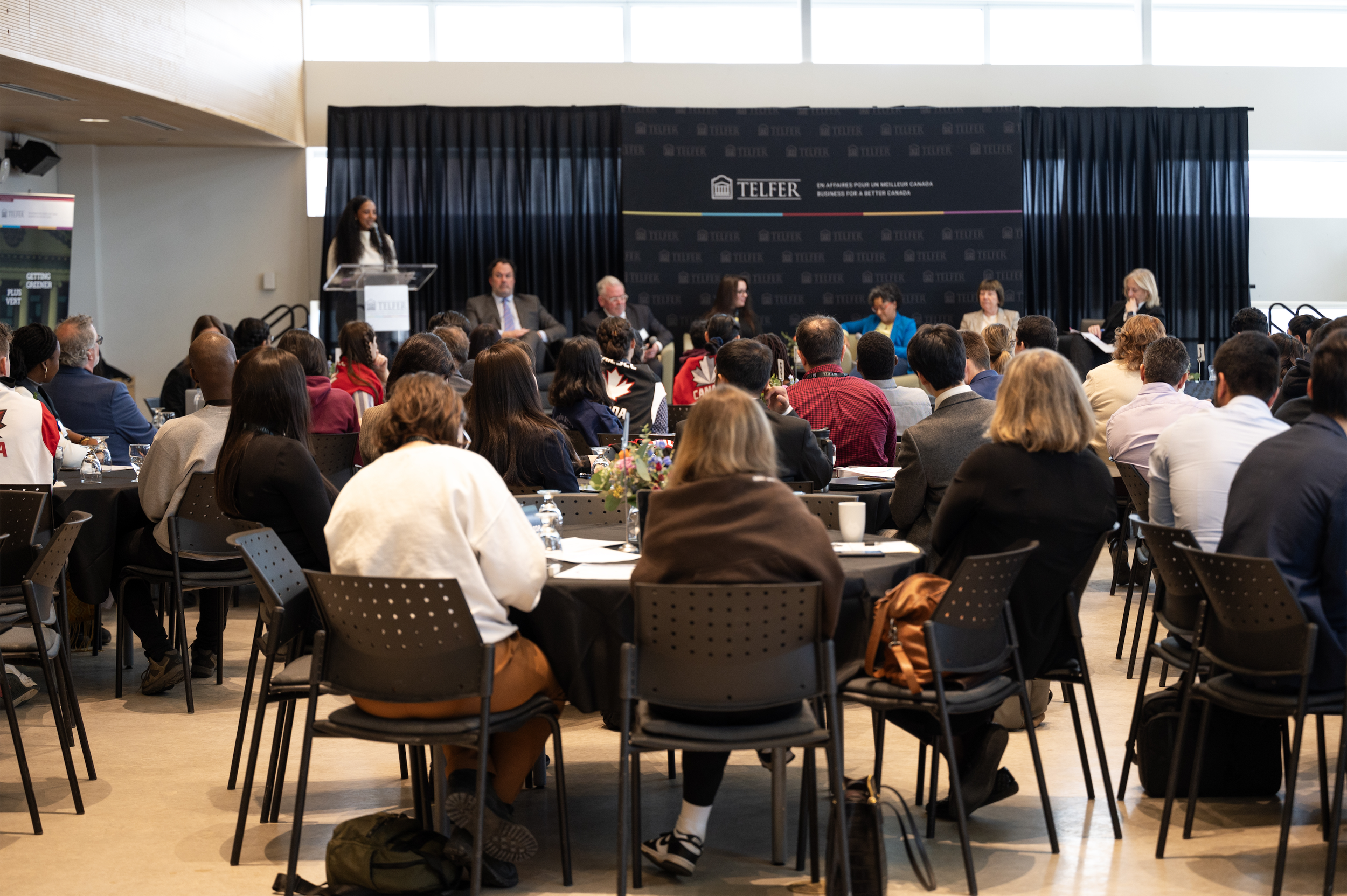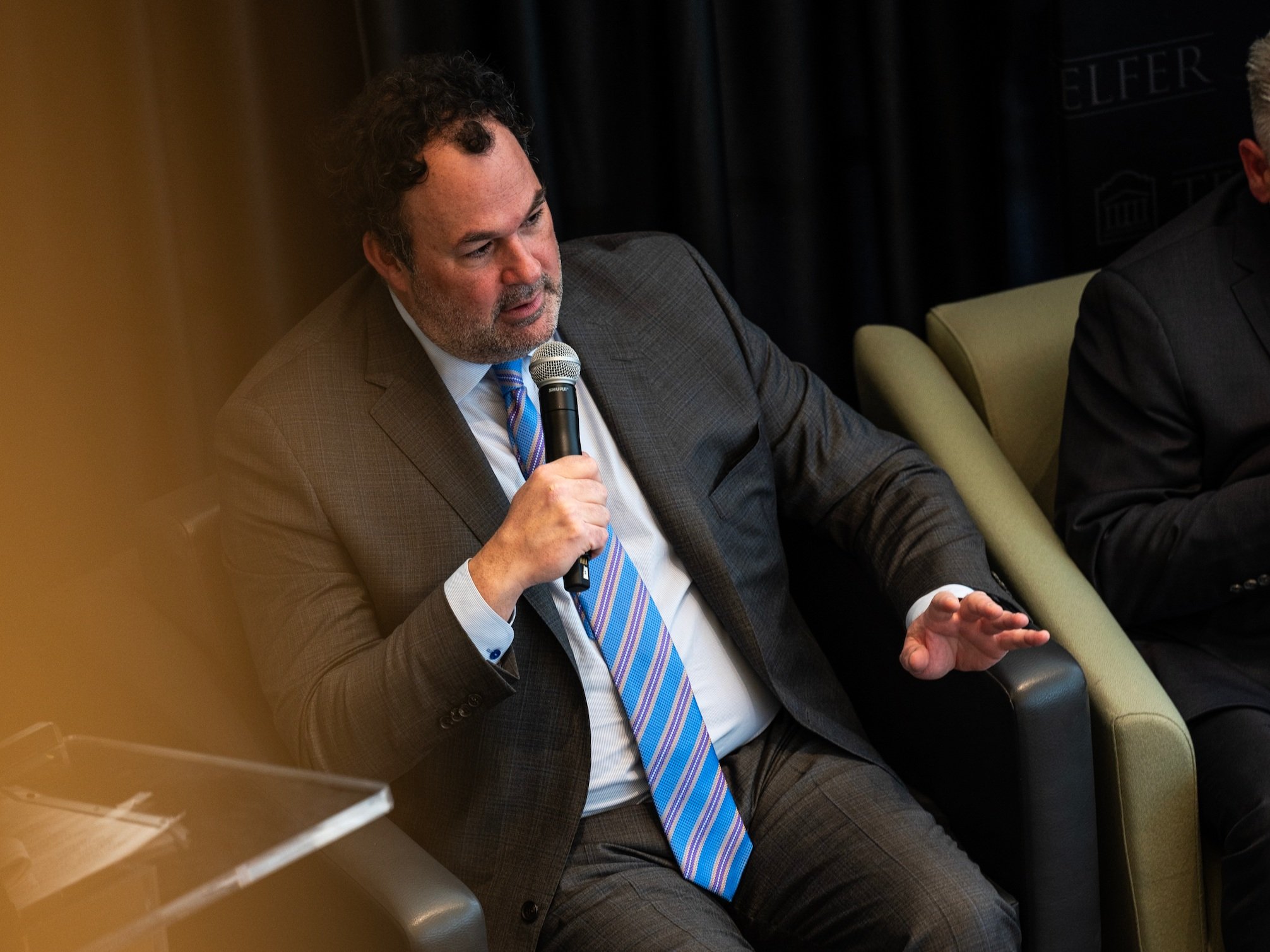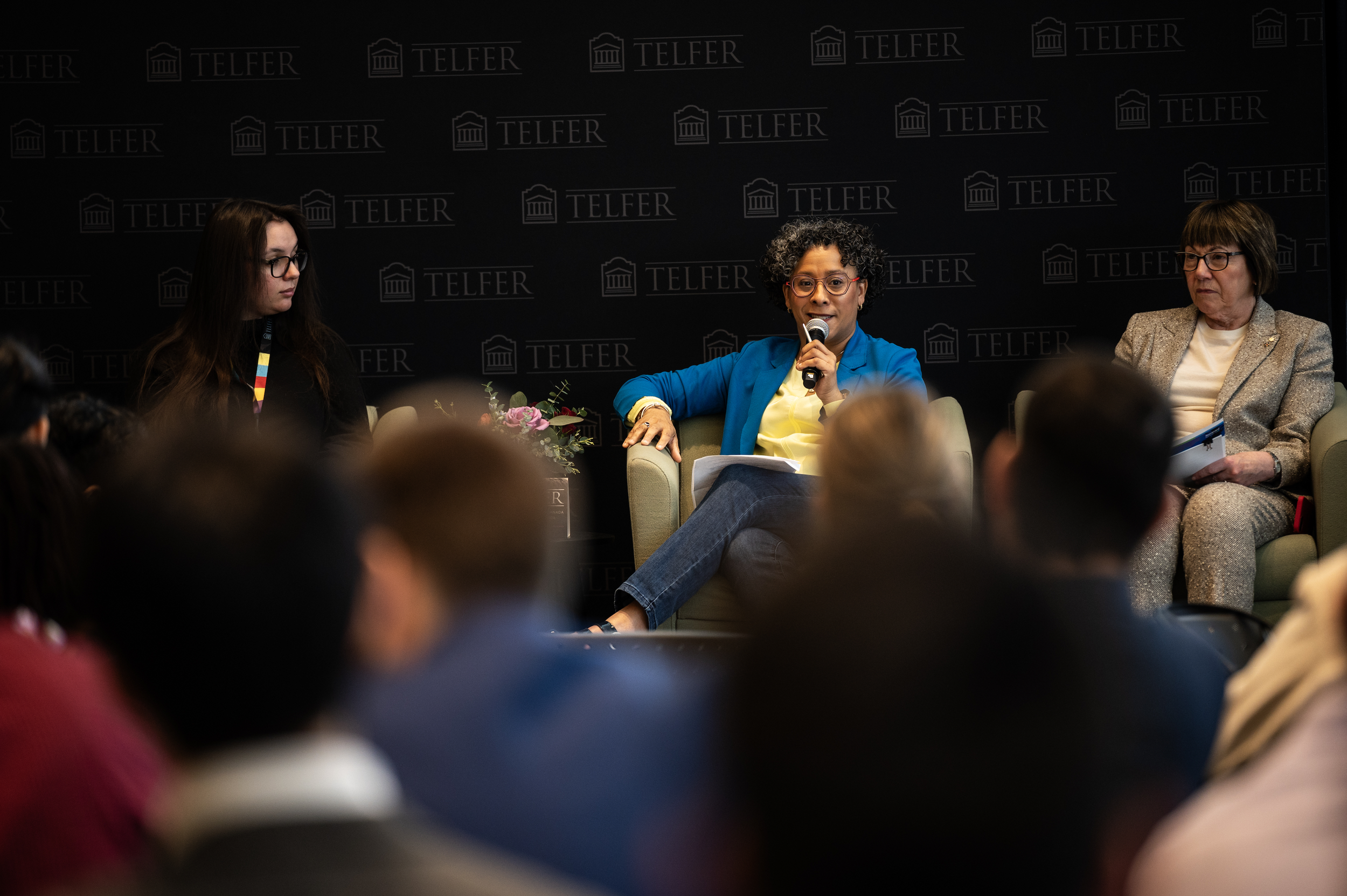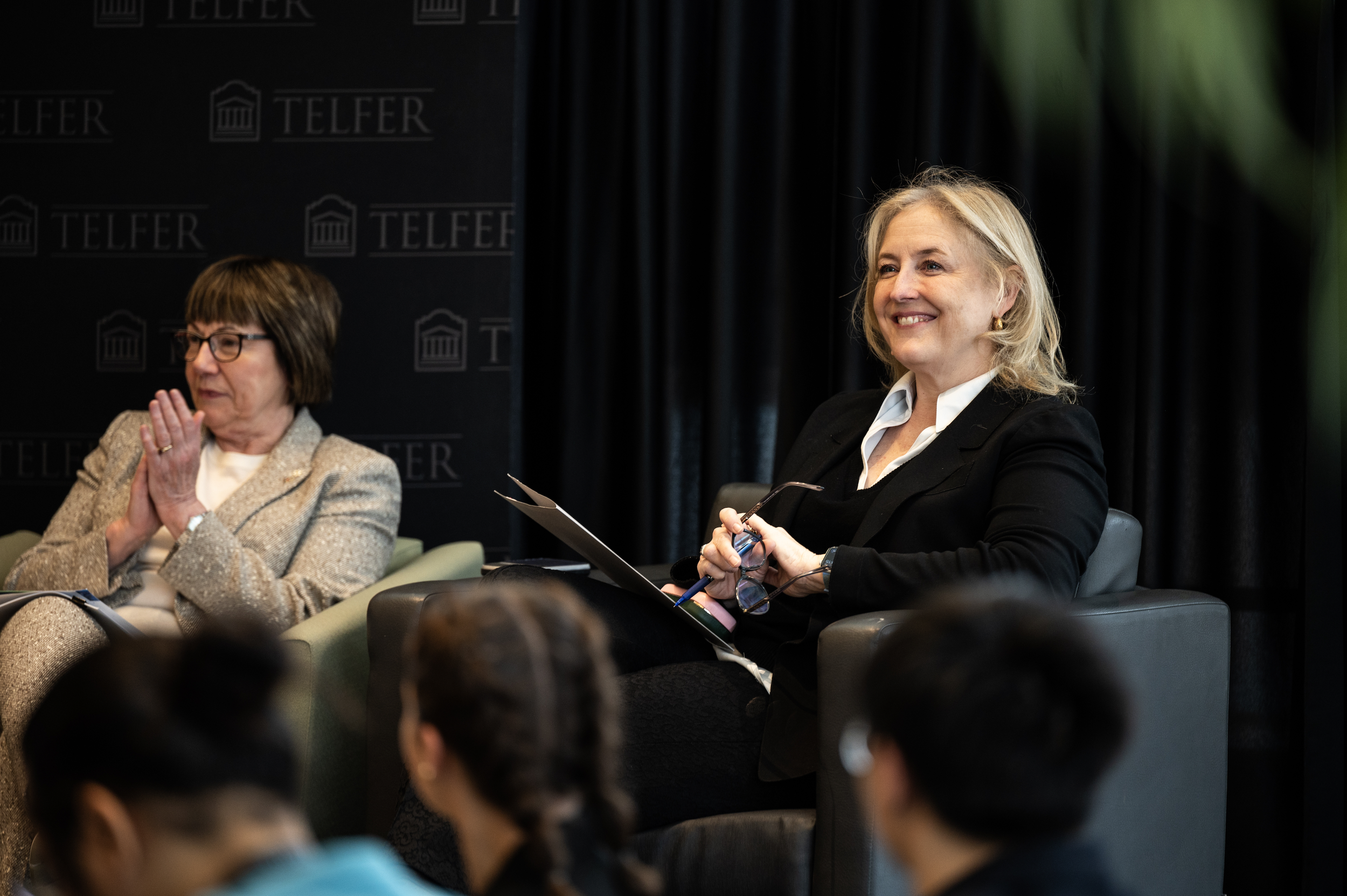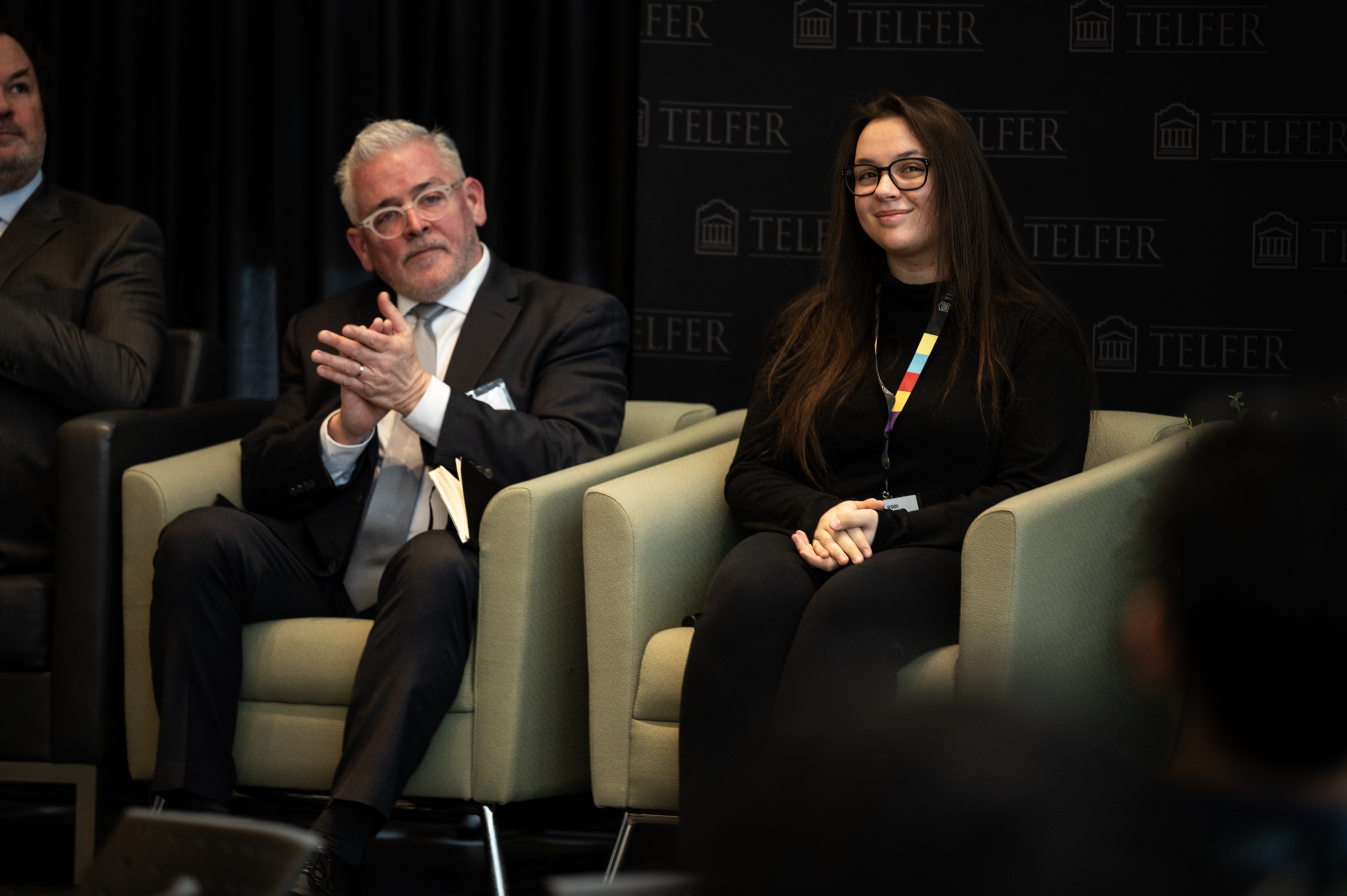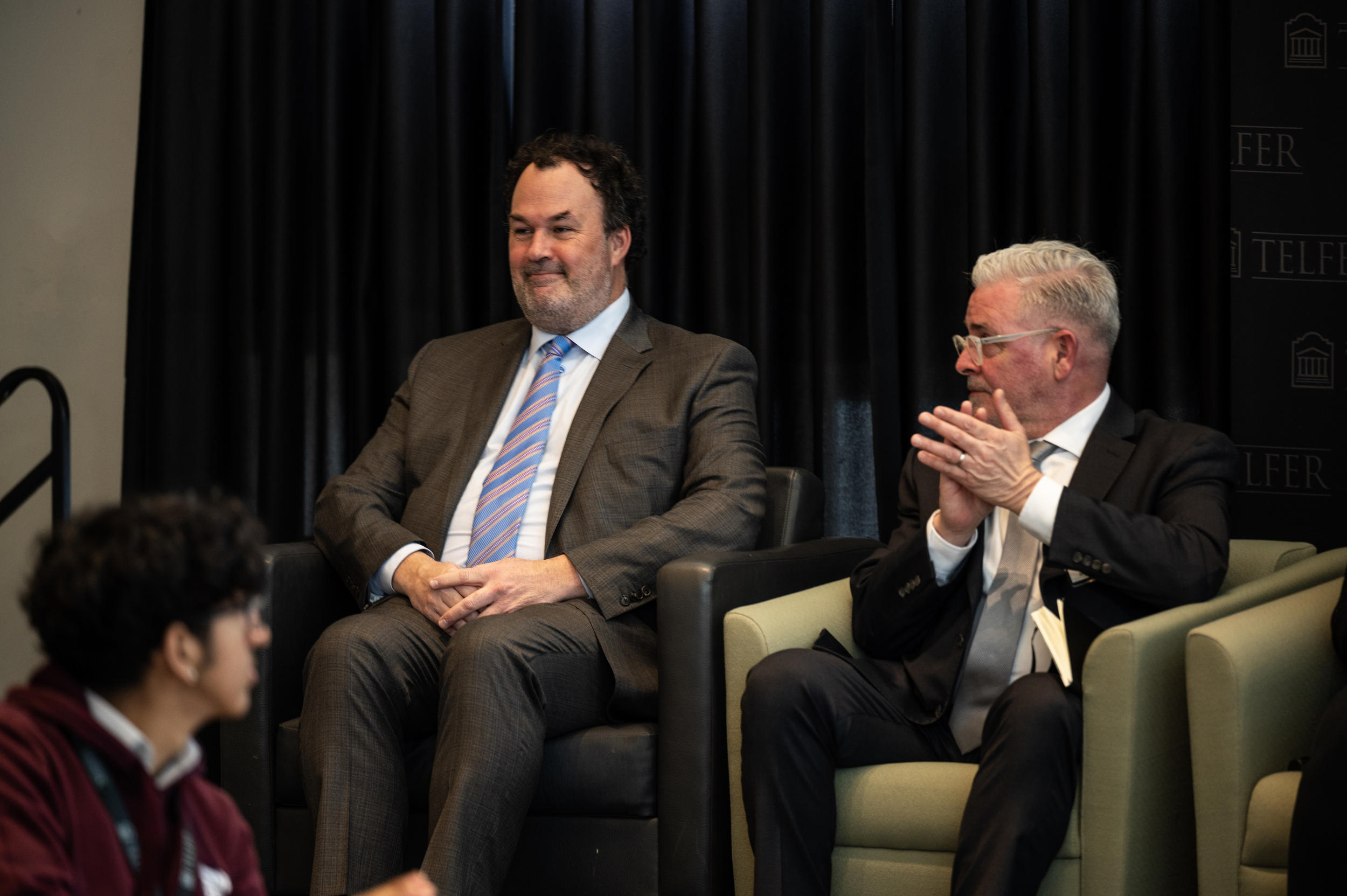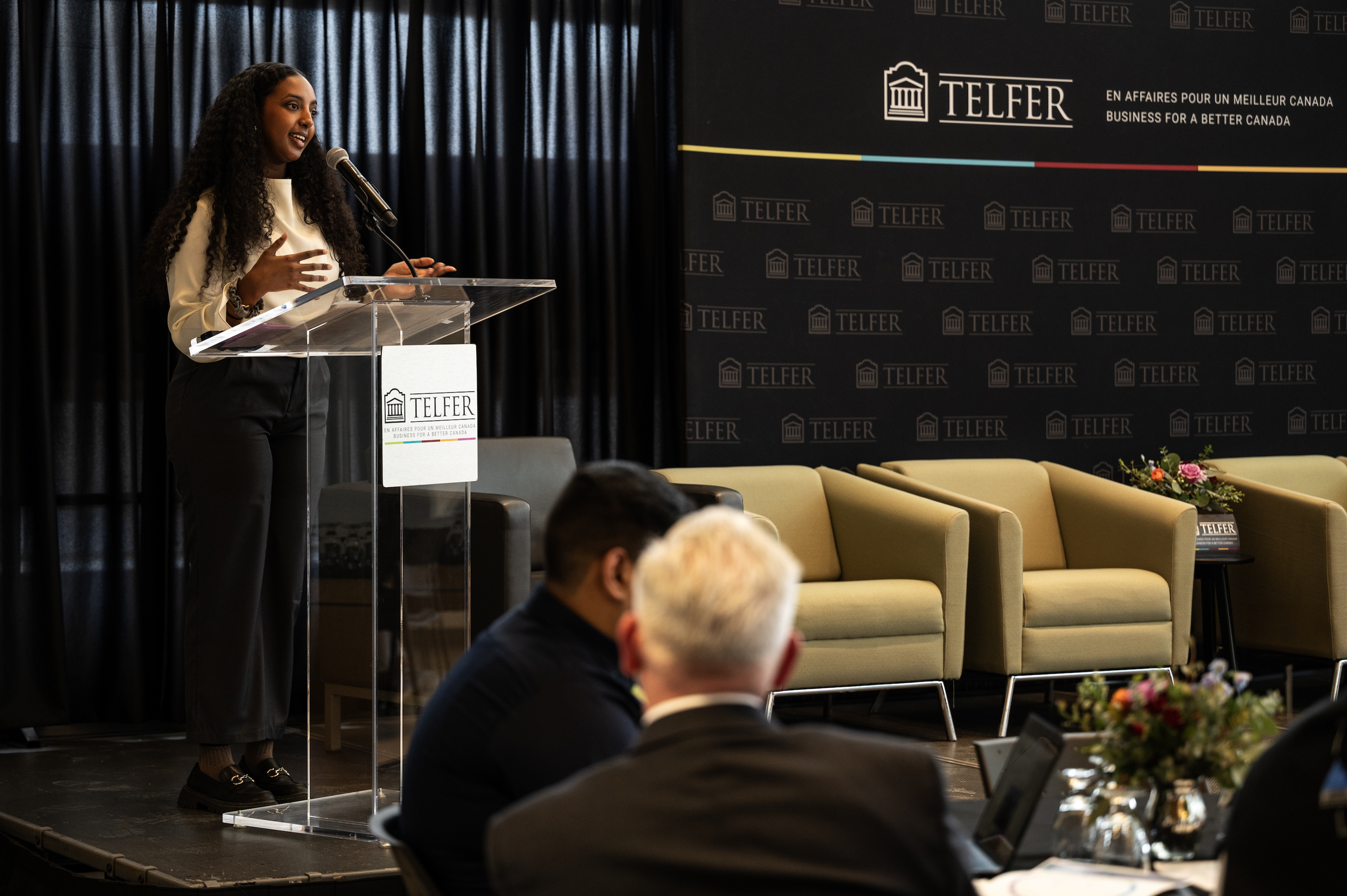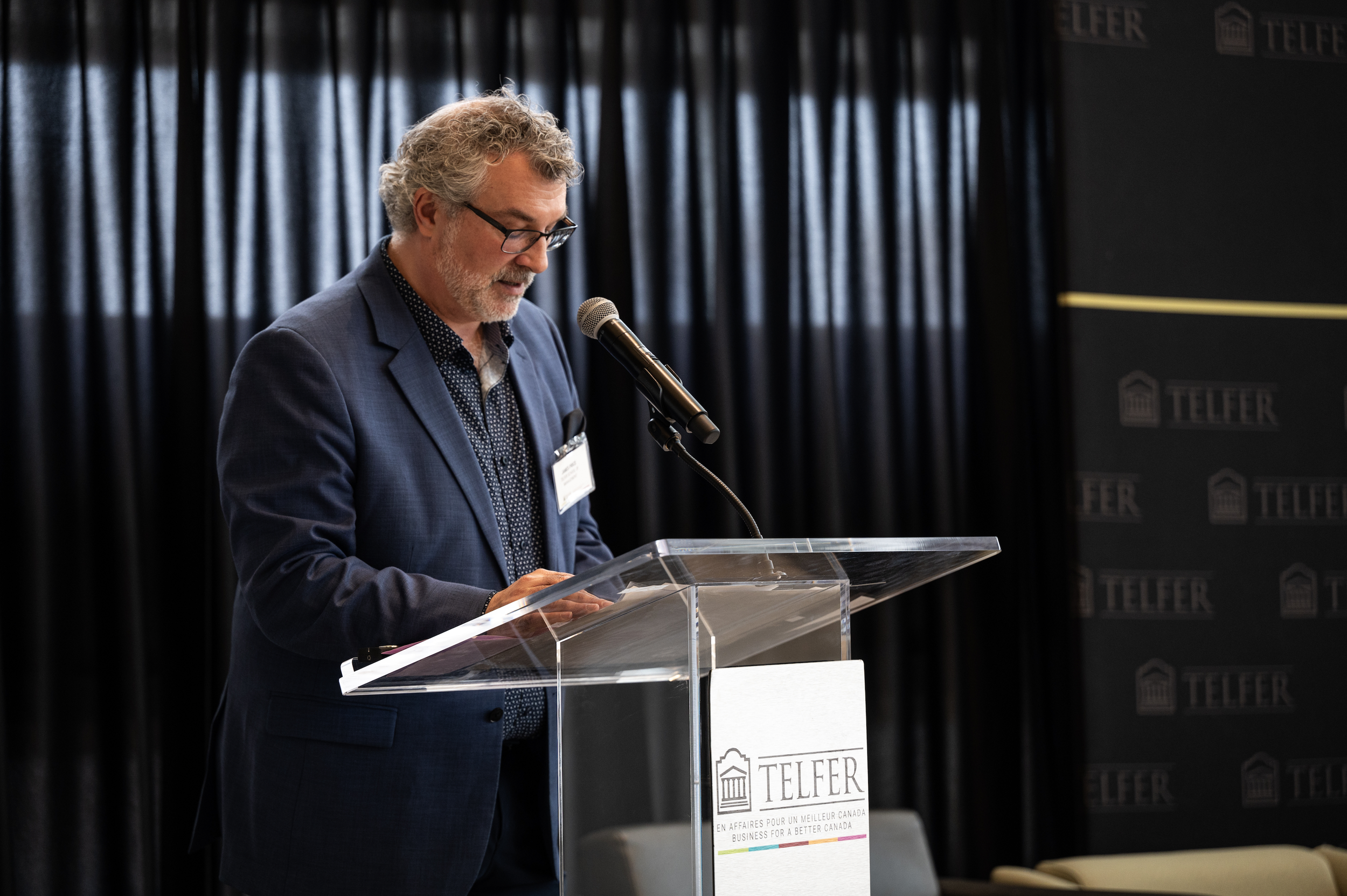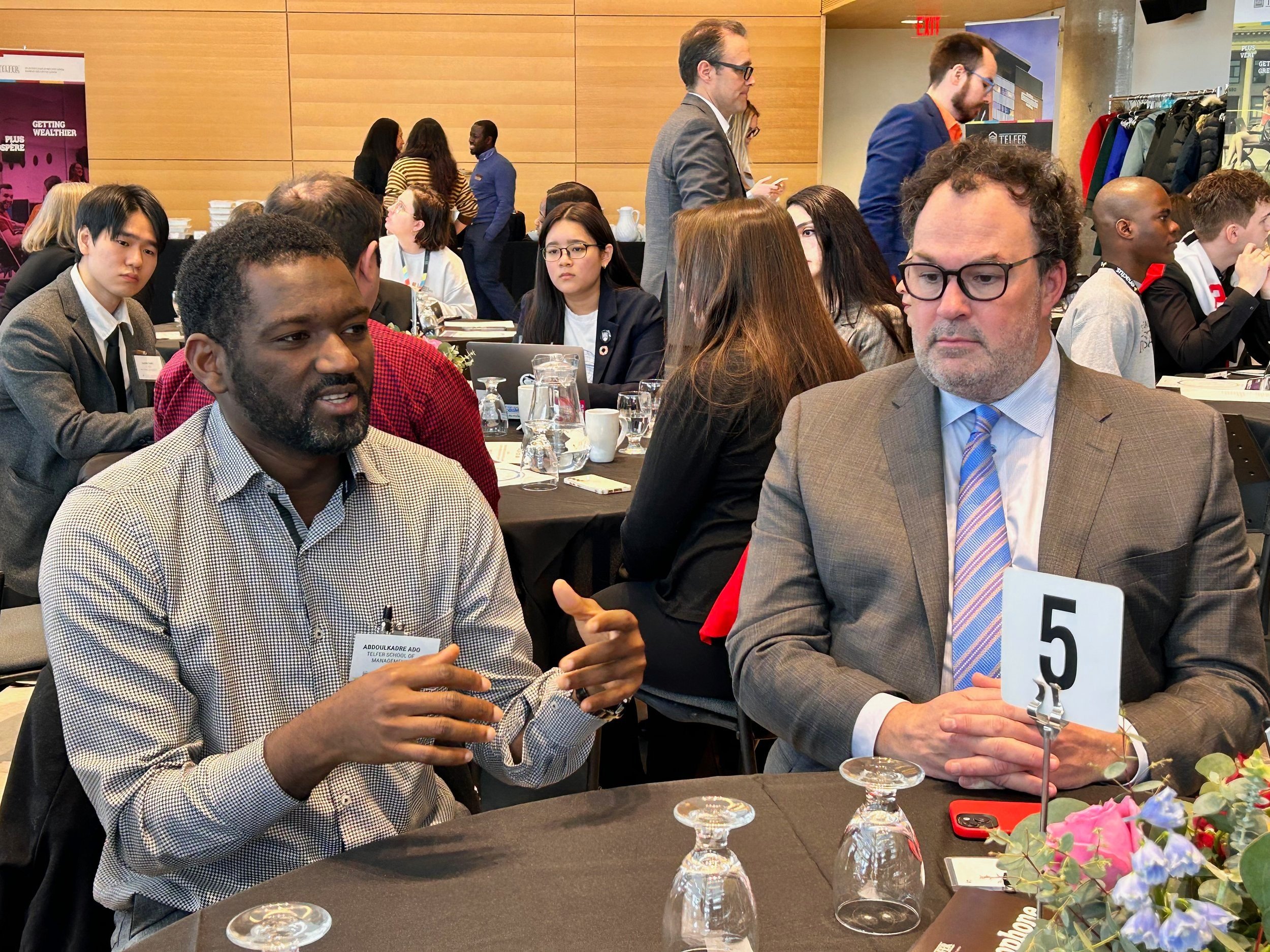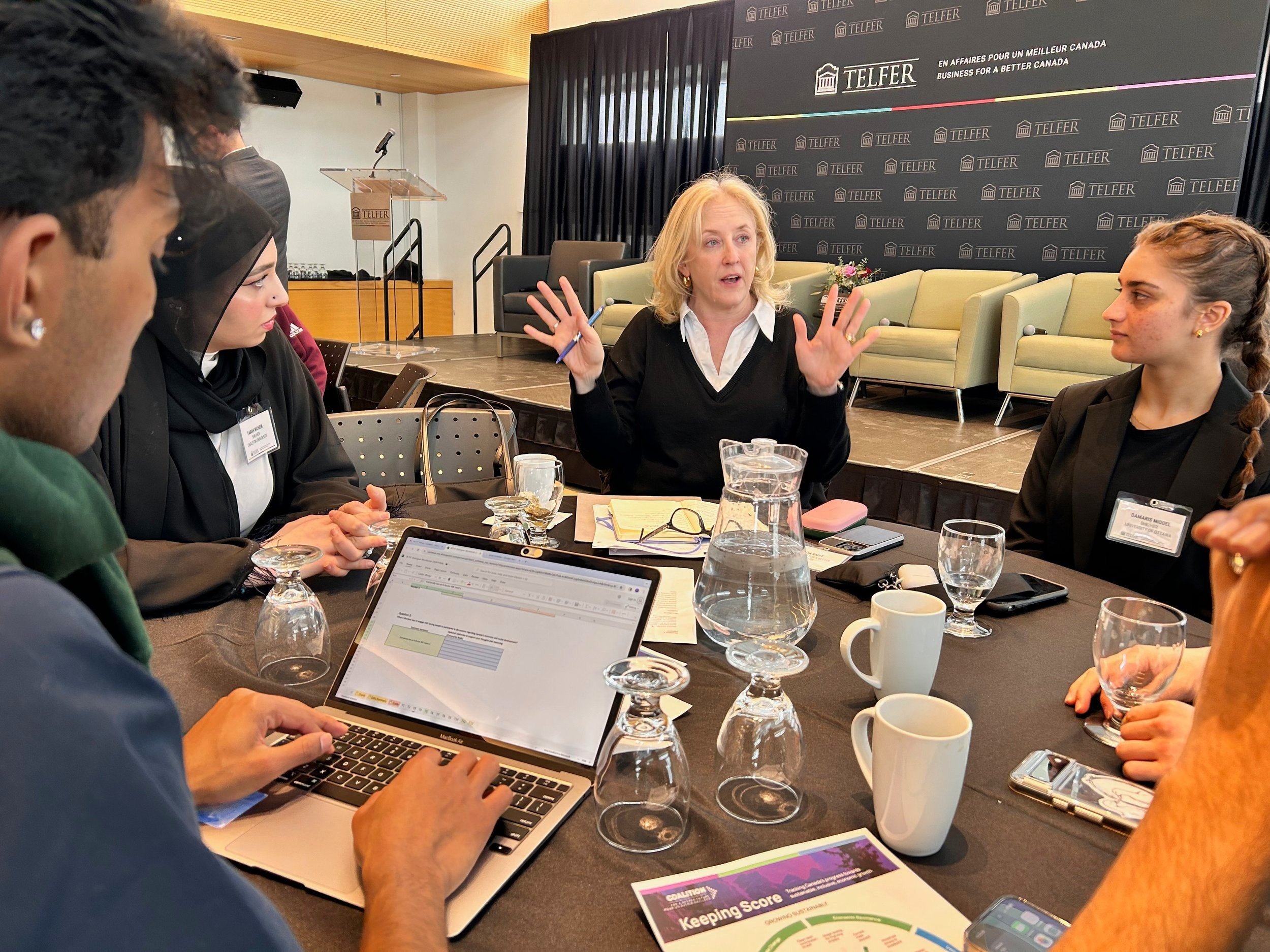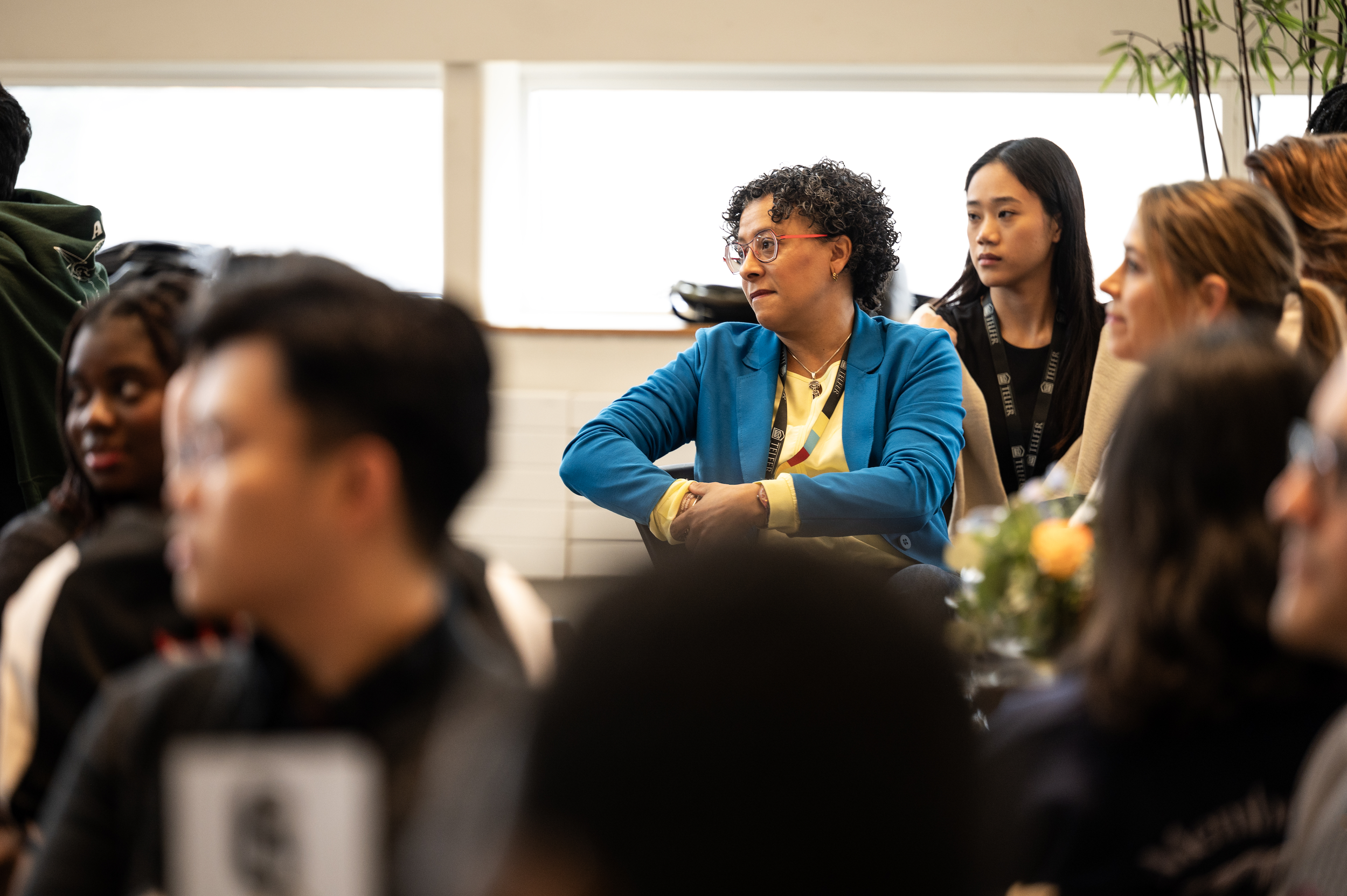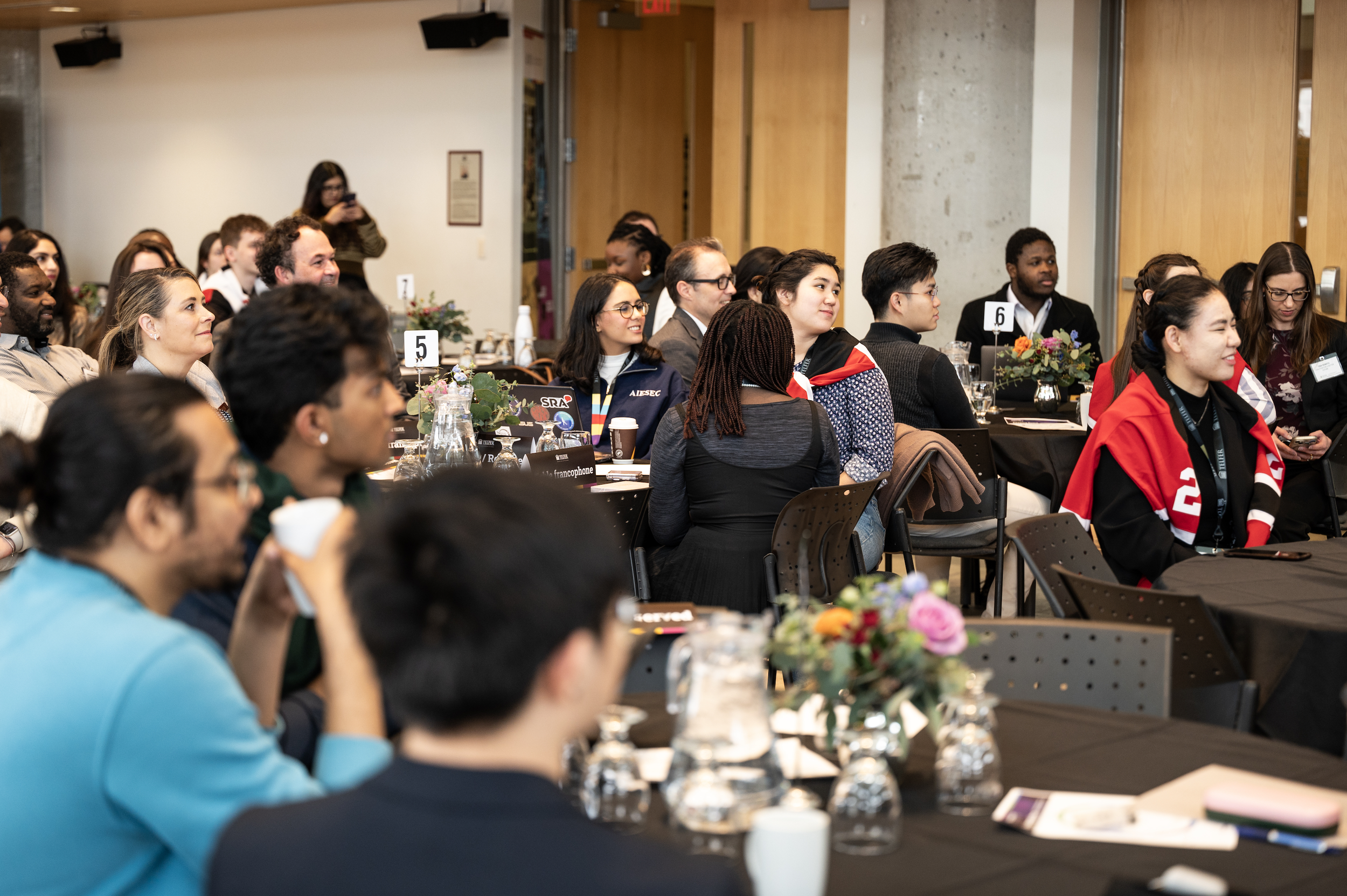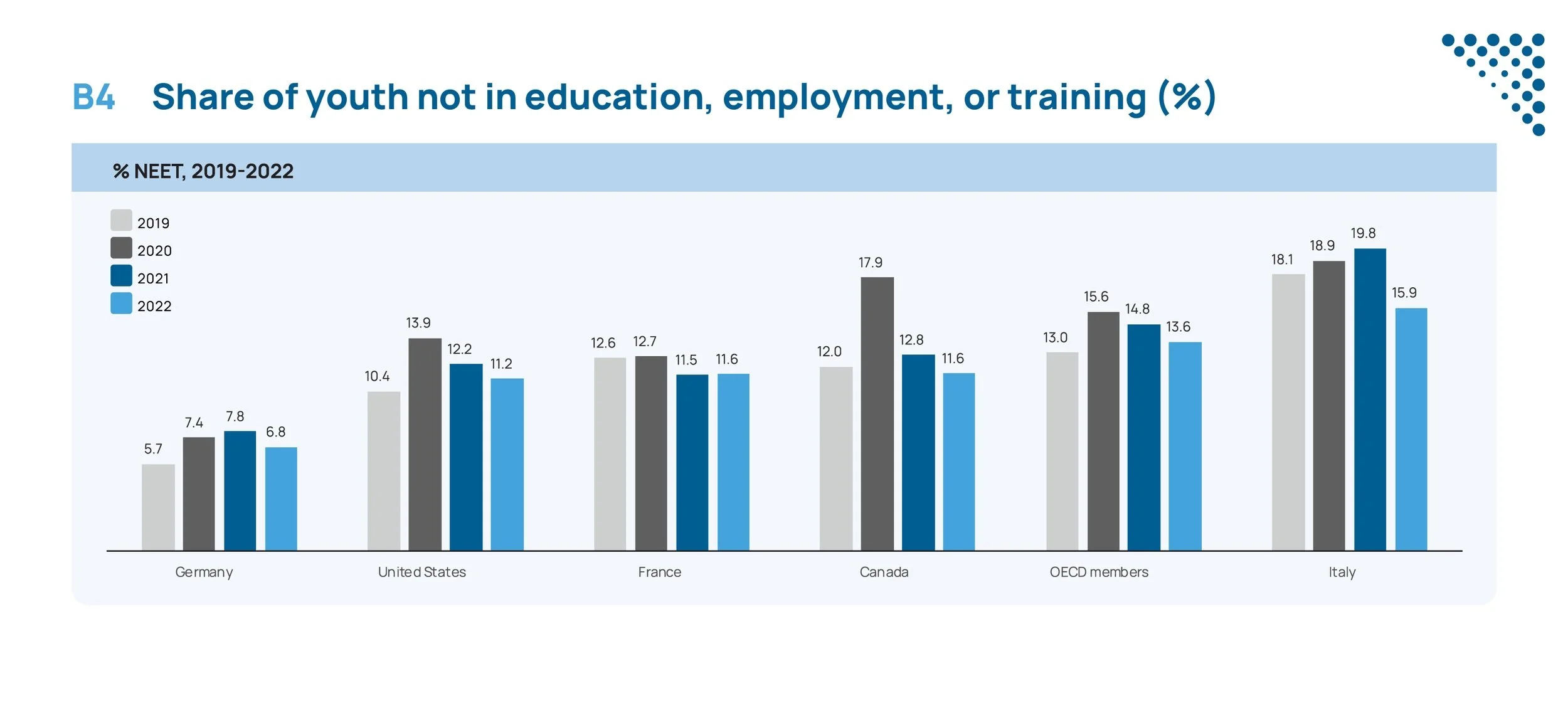Engaging in political decision-making is key for young Canadians to shape their future: Coalition co-chairs
Photo credit: Telfer School of Management
During the 2024 Better Canada Youth Forum, students raised concerns about generational inequality but remained hopeful about their potential to positively influence Canada’s economic future.
At the forum, Anne McLellan and Lisa Raitt, co-chairs of the Coalition for a Better Future, emphasized how active involvement in the political process can empower young Canadians to drive change.
"It's incumbent upon young people to get involved and be involved," said McLellan, emphasizing the significance of their participation in the electoral process. “Decide what you think is most important to you, as young people, for your futures. And then get out there and talk to those people who want to represent you in the government of Canada.”
The Telfer School of Management at the University of Ottawa hosted the forum in partnership with AIESEC Canada. The event brought together 100 students from 25 universities across the country to discuss the factors and strategies that will help shape a better Canada.
“Decide what you think is most important to you, as young people, for your futures. And then get out there and talk to those people who want to represent you in the government of Canada.”
Anne McLellan, co-chair, Coalition for a Better Future
The event was part of the Coalition’s Campus Tour program, which is supported by Shell Canada. This program brings the co-chairs to universities, colleges and training centres across the country to speak with the leaders of tomorrow.
Over the past two years, Nanos Research has conducted surveys for the Coalition that highlight the issue of generational inequity. These studies reveal an increasing sense of pessimism among Canadians regarding the nation's trajectory, particularly among younger Canadians - a major shift for a demographic that is usually the most optimistic.
Raitt echoed the message around the importance of active involvement, stressing the value of the Coalition's Scorecard as a tool for young people to have "spin-free" discussions with politicians.
“What we seek to do with the Scorecard is to continuously give you the same metric information year after year after year after year. And that'll allow you to see for yourselves how we're doing as a country and make your conclusions around are we being sustainable, and are we going to be prosperous as a nation.”
Speaking about the power of youth engagement and the potential for generational growth, Samar Jeddi, National President of AIESEC Canada, underscored the importance of collaboration. She described the Scorecard as an invaluable resource for young leaders to measure and motivate progress.
“The purpose of a scorecard, regardless of industry, is to incentivize growth. It's to keep you on track and to keep you motivated. So especially for the next generation of leaders, I think it's absolutely incredible and necessary to make sure that they have the things necessary to follow into future roles,” said Jeddi.
The Telfer School of Management is the Coalition’s research partner, providing data analysis on the Scorecard’s 21-key metrics.
Acknowledging the slow economic growth reflected in the Coalition’s Scorecard findings, panellists discussed the importance of shaping public policy to create a more prosperous future for all.
Arguing that the country isn't meeting its potential and must strive for higher productivity and innovation, Robert Asselin, Senior Vice President of Policy at the Business Council of Canada, urged the youth to advocate for better public policies.
“Canada's a good team. We have a good team. But we're not winning enough. We can do better,” said Asselin. “This is about your future. And this is why you should care about the Scorecard. It's about how, as a country, we live to our potential. I think Canada's potential is much higher than what we're showing right now.”
Reiterating the importance of public involvement in policy-making, panellist Bob Klager, Head of Government Relations for Shell Canada, acknowledged the polarizing discourse around the energy transition and stressed the need for inclusive dialogue.
"Canada has all the capability and potential to actually be a leader, a global leader in the energy transition," Klager said. “But the issues become weaponized, and it's very partisan. And it's causing, I think, a lack of progress, or at least we're not achieving the potential that we can achieve.”
Detailing the challenges related to climate disruptions and the critical need for sustainability, Justine Hendricks, President and CEO of Farm Credit Canada, highlighted agriculture's significant role in Canada's economy.
“This is the sector that has the ability to help solve hunger, health, the climate crisis and be a huge driver of economic growth. And they can actually do it simultaneously,” said Hendricks.
“Canada has all the capability and potential to actually be a leader, a global leader in the energy transition.”
Bob Klager, Head of Government Relations, Shell Canada
What does economic growth mean to you?
When participants were asked what economic growth means to them as part of a live polling activity, students focused mostly on prosperity and sustainability.
These ideas were reflected during table discussions that delved into pressing issues facing young people today, ranging from affordable housing to access to education and entrepreneurship support. What emerged was not just a list of problems but a shared determination to find solutions and drive change.
On the issue of affordable housing, participants highlighted challenges ranging from struggling to pay rent while working multiple jobs to the stark differences between housing affordability in Canada and the U.S. This disparity sparked conversations about the need for better policies and support systems to ensure that young people have access to safe and affordable housing.
Another key focus was the importance of education and training opportunities. McLellan pointed out that 11.6 per cent of Canadian youth are not in school, training or working.
Source: International Labour Organization
“What supports do they need to get or stay in school, to be able to go to find a job, whatever their situation is, because that is over 10 per cent of the productive capacity of our country that seems to have disappeared,” said McLellan. “And we need to know where they are and how we help them become active, productive parts of the Canadian society.”
“There's a feeling that the voice of this generation is not being heard by a government or any other higher authority. It's an imperative that you be there in decision-making, and have a voice and be heard.”
Lisa Raitt, co-chair, Coalition for a Better Future
Participants emphasized the need for more internships, co-op programs and skills training initiatives to help young people gain valuable experience and prepare for the workforce. Mentorship also emerged as a critical component, with discussions centring on the role of experienced professionals in guiding and supporting the next generation.
Students also spoke about the power of social media to bring people together and amplify voices. However, they also highlighted the importance of being cautious about the information shared online and the need for safe spaces for meaningful dialogue and collaboration.
Summarizing the conversation at her table dialogue, Raitt said discussions like the Youth Forum need to continue and that young people must collectively voice their concerns on issues like high inflation and affordable housing.
“There's a feeling that the voice of this generation is not being heard by a government or any other higher authority,” said Raitt. “It's an imperative that you be there in decision-making, and have a voice and be heard.”
Photos from the Campus Tour

